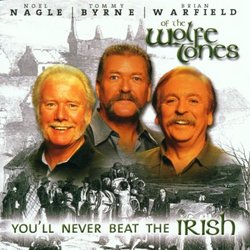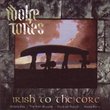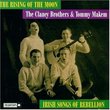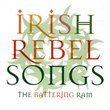| All Artists: Wolfetones Title: You'll Never Beat the Irish Members Wishing: 0 Total Copies: 0 Label: Celtic Release Date: 12/19/2005 Album Type: Import Genres: Folk, International Music Styles: British & Celtic Folk, Celtic, Europe, Britain & Ireland Number of Discs: 1 SwapaCD Credits: 1 |
Search - Wolfetones :: You'll Never Beat the Irish
 | Wolfetones You'll Never Beat the Irish Genres: Folk, International Music
Track Listing — 1. You'll Never Beat The Irish - pt.1 — 2. The Crossing — 3. The Rebel — 4. In Belfast — 5. Chicago — 6. We Are The Irish — 7. United Men — 8. Ireland My Ireland — 9. Halloween — 10. Grace — 11. The Hot Asphalt — 12. T... more » |
Larger Image |
CD DetailsSynopsis
Product Description Track Listing 1. You'll Never Beat The Irish - pt.1 2. The Crossing 3. The Rebel 4. In Belfast 5. Chicago 6. We Are The Irish 7. United Men 8. Ireland My Ireland 9. Halloween 10. Grace 11. The Hot Asphalt 12. Thank God For America 13. Celtic Dreams 14. You'll Never Beat The Irish - pt.2 Similar CDs
|
CD ReviewsWolfe Tones do 'Riverdance' Francis King | Calgary, AB, Canada | 03/05/2005 (3 out of 5 stars) "One of Ireland's longest-lasting and most visibly Republican bands returns after a loooong absence with one less member and a concept recording that's quite clearly its response to the massively popular Riverdance production. Here's the songlist: You'll Never Beat The Irish Pt. 1 The Crossing The Rebel In Belfast Chicago We Are The Irish United Men Ireland My Ireland Halloween Grace The Hot Asphalt Thank God For America Celtic Dreams You'll Never Beat The Irish Pt. 2 This 14-song collection, written mostly by singer/banjo player Brian Warfield, takes its musical cue from Riverdance. That means far more of a 'world beat' sound than previous recordings, with multiple acoustic guitars, violin, keyboards and percussion -- lots of percussion (though nobody is credited for playing it, strangely). Part of the impetus for this change in sound could be Kiev Connolly, who co-produced You'll Never Beat The Irish with Warfield. He also did all the arrangements, which makes me wonder if this is really a Wolfe Tones album, or a Connolly-Wolfe Tones collaboration. Lyrically You'll Never Beat The Irish also takes it cue from Riverdance, examining the history of the Celts...only in this case, concentrating on the Irish part. Given the Wolfe Tones' fierce Republican viewpoint -- apparently unchanged since the bitter departure of co-founder Derek Warfield several years ago -- that means the British monarchy and politicians are lacerated left, right and centre for the famine, the troubles in Ulster and creating religious divisions. But there's something false here. Of course it's ridiculous to think anything less than a 6-CD package could cover all the terrible beauty of Irish history, but the approach of Warfield, singer/acoustic guitarist Tommy Byrne and flute player/singer Noel Nagle stops at the 1916 East Rebellion in Dublin. There's only the most fleeting mention of famed rebel/Free State leader Michael Collins and nary a single word on the bitter, violent Irish Civil War in 1922-23. Why? Could it be because it was one black moment in the nation's story that could not entirely be blamed on outsiders? There's no excuse for stopping at the rebellion, especially when Chicago and Thank God For America both touch on the Irish experience in America. That's one song too many, in my opinion. " Love the Wolfe Tones REX | 11/16/2008 (5 out of 5 stars) "This album is a must for any Wolfe Tones fan. It demonstrates the indomitable spirit of the Irish."
|

 Track Listings (14) - Disc #1
Track Listings (14) - Disc #1


